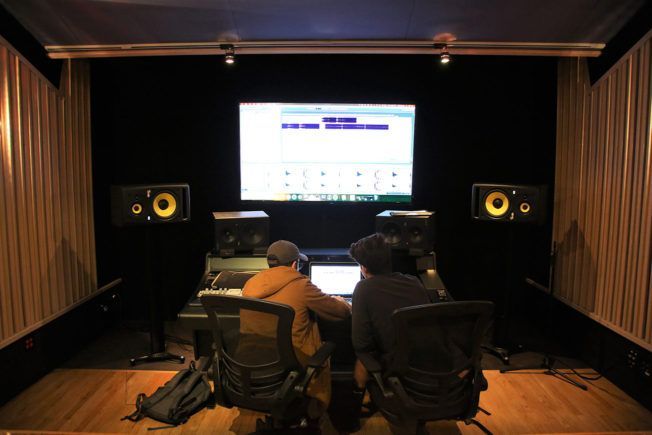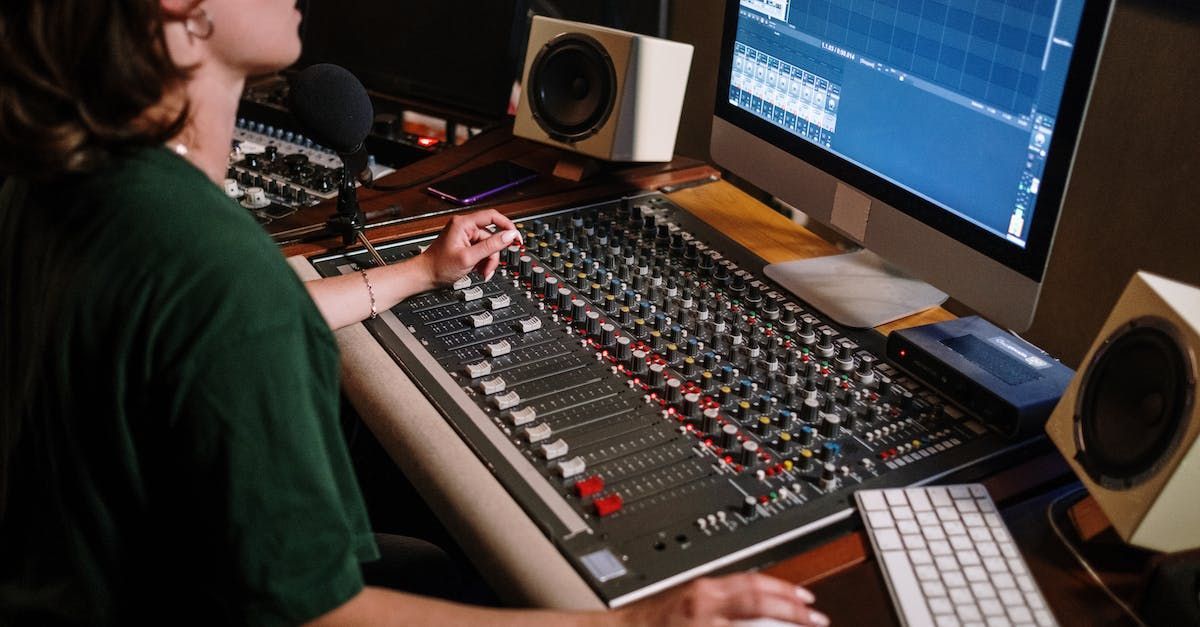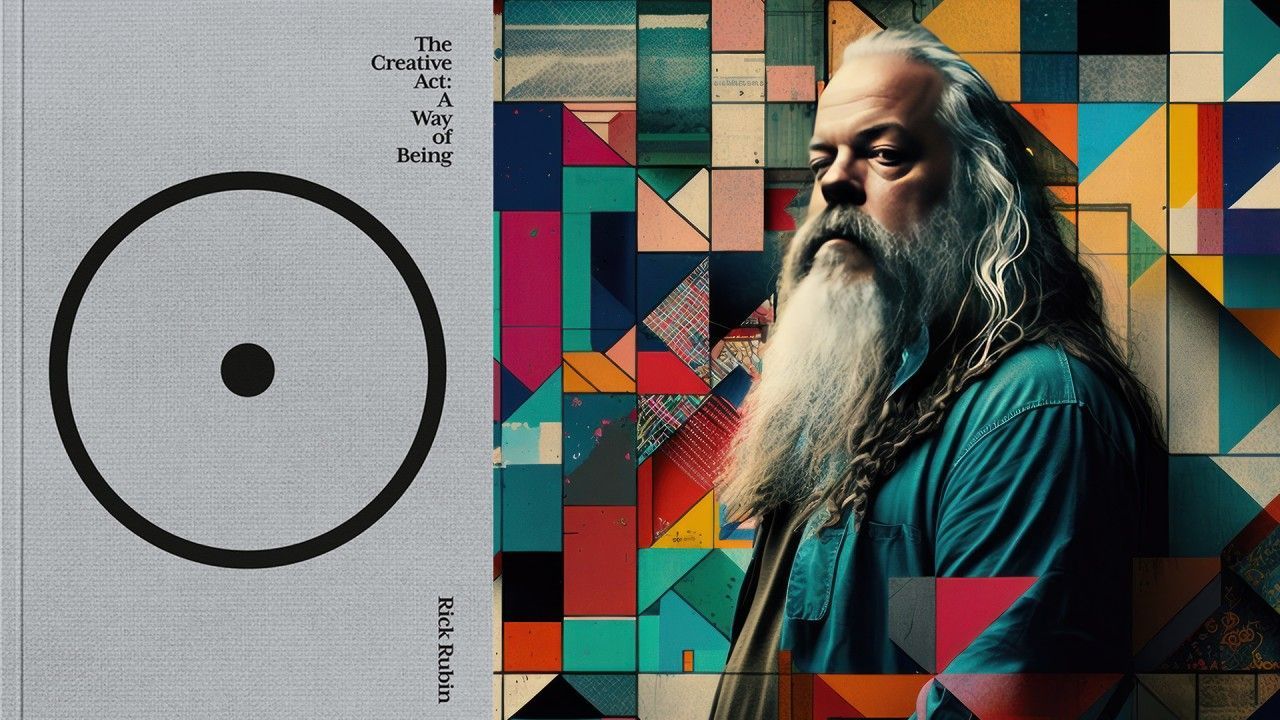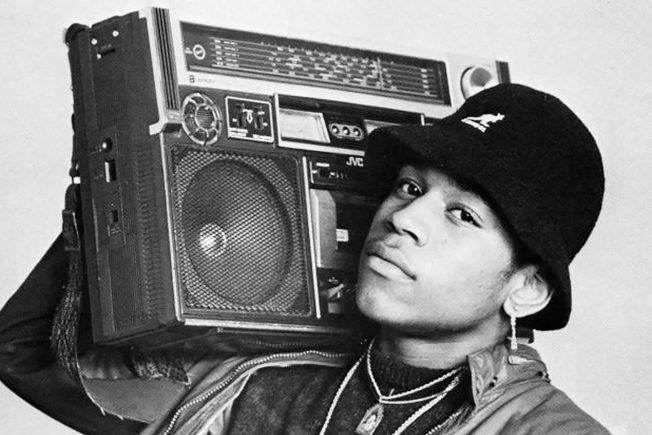What is music collaboration, and how can this skill advance your music and career? Learn five benefits of collaborating with other creatives in the music industry.

What is Music Collaboration?
Music collaboration is when two or more creatives come together to produce a musical project. Collaborative partnerships can occur at various stages of the creative process. It’s one of the most significant creative forces driving music today. As an artist, it’s essential to understand the value of music collaboration and the advantages this skill offers.
Music collaboration is a crucial skill all musicians should consider. Collaborating with other creatives will also benefit you in numerous ways beyond making a great piece of music. It can help develop your musical knowledge, expand your fanbase , boost exposure, open opportunities, and advance your career in the music industry. Here are five benefits of musical collaboration.
[yuzo]
1. Tapping Different Skills and Sharing Ideas
Collaborating with like-minded creatives with different skills or experience is beneficial. The music industry comprises people with innumerable skillsets and trades. Working with talented music producers, singers, songwriters, audio engineers, and others who can provide complementary skills and ideas will improve your music and musical knowledge.
If your skill is music producing , that’s great. Keep honing your craft, and when you need to tap a mixer, vocalist, etc., find someone whose roll fits that description. Work together to boost creativity, learn new techniques, share musical ideas, and delve into different areas of the creative process. You’ll discover how collaboration lightens the workload and increases productivity.
Connecting through the internet makes this process even easier. Check out online music collaboration services like Splice , ProCollabs, and Kompoz to connect with other industry creatives. Try finding partnerships with artists who excel in areas outside your specialty. Complement each other’s strengths and weaknesses to create and learn new techniques.
2. Music Collaboration Increases Productivity
Working with others and delegating different responsibilities during the creative process can save time and boost productivity. For example, you may struggle with mixing during post-production. For this reason, you could work with a mixing engineer and let them mix your music faster. Meanwhile, you can also start a new track.
Offloading duties will also free time to focus on other aspects of building your career. For example, brand development, promotion strategies, social media presence, and booking shows. These efforts are vital in this saturated industry. Moreover, collaborating with others can inherently double these strategies.
Collaboration can also increase productivity by helping combat writer’s block. It’s easier to work through creative stalls by sharing ideas and inspiring each other. Moreover, collaboration forces you to hit deadlines and not procrastinate or make endless tweaks.
3. Learn New Techniques Through Collaboration
Music collaboration presents opportunities to learn and create. No one person within the industry knows everything about music. Everyone, including you, has something unique to offer. So, when you work with others, you’re learning and teaching simultaneously.
During the process, you will also identify your strengths and weaknesses. Your strengths will drive your music, and your weaknesses will allow you to take your music to the next level. Collaboration can encourage you to address limitations and push the boundaries of what you’re capable of musically.
Learning new techniques and putting them into practice also forces you out of your comfort zone as an artist. For instance, try collaborating with someone who makes music outside your genre. If you make dubstep, work with someone who makes house music. By doing so, you’ll see the similarities and differences between the production techniques. You might also discover a love for a new genre you never knew you had.
4. Receive Helpful Feedback and Constructive Criticism
Music feedback is an essential part of artist development. Seeking feedback will help you improve your music and production skills.
As musicians, we become immersed in the music production process, and it makes it hard to hear our music objectivity. Useful feedback, both positive and negative, will give you a fresh perspective on your music. It will also present new ideas, reveal problems that may need fixing, and help you make artistic decisions.
Furthermore, if your goal is to be a professional music producer, you must learn how to make music for other people, not yourself. Collaboration will force you to show your music to others, which will make you more comfortable sharing your art. By having others contribute to the process, you’re inherently receiving feedback on your music. This approach will help give you a more well-rounded sense of what’s working and what isn’t. Remember to keep your ego in check. Feedback on a track is just that. It’s not personal. The person you’re collaborating with wants the music to sound good, just like you.
Also, two minds are better than one. Working with other artists can ignite inspiration, trigger ideas, and motivate you to finish a song you’re struggling to complete.
5. Expand Your Network and Fanbase Through Collaboration
Working with other artists doesn’t just mean you benefit from their musical expertise. Collaborating with other artists also exposes you to their fanbase. Tapping into the audience of another artist is a great way to reach new fans and expand your exposure. And if the other artist is well-established in the music scene, then the potential reach is even higher.
Collaborating with another artist can also connect you with their industry contacts. Having an extensive network of professionals within the music industry is vital to your success. Expanding your network can also open doors to further opportunities. For example, collaborations could lead to:
- More gigs and the chance to open for a more prominent artist
- Connections to record labels and an increased chance of getting signed
- Opportunities to get your music featured on major music blogs
- More promotional and marketing opportunities
- Exposure to larger audiences and a higher chance of getting discovered
- Getting your music featured on popular Spotify playlists
- More collaboration opportunities with other artists
- Increased music sales and licensing opportunities
- Greater recognition and credibility
Remember, make sure you’re respectful at every step of the collaboration process. Most artists understand relationships don’t always work out creatively, but every relationship should work out in terms of respect. Having your music career hindered because you’re hard to work with can be devastating. If you have concerns, try working with close friends first. Ask for their feedback and impression of you as a professional.
Conclusion
Collaborations have produced some of the best and most innovative music in history. It’s an essential skill to develop. And in the digital era, collaborating with other creatives is even more accessible. Numerous collaboration services, social media, file sharing, and other resources make it easy to collaborate online or at long distances. It’s encouraged to connect with others and develop a collaborative partnership to advance your music and career.

Turn your passion for music into a Profession: Learn more about our Music School Programs!
MORE ARTICLES FROM THE ICON BLOG

FIND YOUR SOUND, HONE YOUR CRAFT:
Are you ready to turn music into a career? ICON prepares students to become music producers, composers, performers, recording artists, professional DJs, and entrepreneurs in the entertainment industry. Click below to get information about our award-winning programs:

